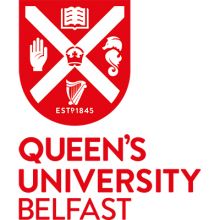
In April, Ed Vaizey, secretary of state for culture, media and sport, publicly called for the “will of the people” to be respected after 124,000 unfunny individuals voted for the Natural Environment Research Council’s polar research ship to be named “Boaty McBoatface”. Jo Johnson, responsible for the project as universities and science minister, then fired off a text message to his Conservative colleague that has only recently come to light. “For the avoidance of doubt, you are an absolute c--t,” ran Mr Johnson’s eloquent comment, according to The Sun on 28 May. “It is understood that Mr Vaizey replied with a sad face ‘emoji’,” the newspaper added. Mr Johnson appears keen to climb the ministerial career ladder at speed – some future historian preparing a weighty biography will be grateful for this insight into how he conducts his sophisticated, high-level ministerial discussions.
Boaty McBoatface may be a tedious saga, but must defer to the undisputed champion in that field: the European Union referendum campaign. Stephen Hawking joined the fray in an interview with ITV’s Good Morning Britain, suggesting that there are “two obvious reasons why we should stay in”, citing mobility for students and researchers within the EU. The Guardian reported on 31 May that the physicist added: “The other reason is financial. The European Research Council has given large grants to UK institutions, either to foster or promote exchanges.” Matthew Elliott, the chief executive of Vote Leave, responded: “We give more money to the EU than we get back – meaning we could spend more on science if we vote to leave.”
The roots of the growing gender gap in university admissions are already evident by the age of 13, according to a University of Oxford study. Research conducted for The Sutton Trust found that girls in Year 9 were significantly more likely to perceive getting a university degree as being important than their male classmates. The Daily Telegraph reported on 3 June that Chris McGovern, the chairman of the Campaign for Real Education, said: “Confident girls such as Hermione Granger, of Harry Potter fame, are the norm in many lessons and sometimes boys can find it difficult to get a look in. Such girls are a delight to teach but boys can lose out.” The higher education gender gap has been explained, if Mr McGovern’s fantasy of being a teacher at a fictional school is any reliable guide to reality.
Patrick Johnston, vice-chancellor at Queen’s University Belfast, has apologised in the wake of a PR situation created by his interview with the Belfast Telegraph. Mr Johnston said in the interview, published on 30 May, that the university was “stopping single honours sociology and anthropology”, but would “strengthen those subjects by allowing them to partner with other subject areas which actually make their relevance more connected. Society doesn't need a 21-year-old who is a sixth century historian. It needs a 21-year-old who really understands how to analyse things, understands the tenets of leadership and contributing to society, who is a thinker and someone who has the potential to help society drive forward.” In a statement of “clarification” published on 31 May after inevitable anger from historians, Professor Johnston said that he had “wanted to stress that a university education is more than the study of any one subject and that the aim is to produce graduates who have the potential to become leaders within our society”. The vice-chancellor thereby put the matter to bed and ensured that it will never again be mentioned by anyone, ever.
“A danger drug that exam students claim boosts memory is sweeping universities,” reported The Sun on 6 June. “Undergraduates snort the banned ‘brain-booster’ called Noopept like cocaine or gulp it in capsules. Thousands of students are boosting their grades with the mind-enhancing white powder that supposedly improves memory recall and the ability to learn,” it added. One student who had taken the drug told the newspaper: “It’s all over the country – in London at UCL, at Bath, Bristol, Newcastle, Warwick, Oxford, Cambridge, Leeds and Manchester.” If The Sun’s admirably well-informed source is suggesting that students at post-92 universities are insufficiently clued up to chug the “danger drug”, then this merits examination by government social mobility experts.
Register to continue
Why register?
- Registration is free and only takes a moment
- Once registered, you can read 3 articles a month
- Sign up for our newsletter
Subscribe
Or subscribe for unlimited access to:
- Unlimited access to news, views, insights & reviews
- Digital editions
- Digital access to THE’s university and college rankings analysis
Already registered or a current subscriber?

